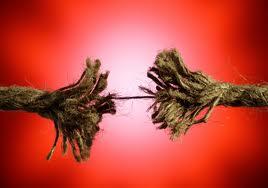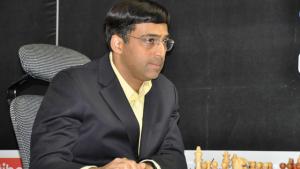
Decisive Games
Few games test a player psychologically as much as the last-round game of a tournament (or the decisive game of a match). When the prize money, championship, or norm is on the line, the tension becomes extremely high. In this situation you can find anything from reckless attacks and nervous play or blunders to brilliant and self-controlled play. Some people make quick draws and take a much lower prize because they cannot deal with the tension. How does one cope with the crucial last-round game?
There are a few things which can impact a player's performance in the crucial game. First of all, this is usually the end of a tournament, so tiredness is a factor. Obviously, nervousness is the most important - there are no more games, there won't be a chance to "come back" next round - the music stops after this one.
A player's mindset, psychology, and even life circumstances strongly affect how they experience the last round. I strongly believe that if you do not have stable life circumstances - particularly if you are a professional chess player - you will have trouble in the last round. By this I mean if you are poor and need to win to pay the rent. Generally that will negatively affect your performance, although it also plays off your psychology - some people would even play better in such a situation.
A famous quote by Mikhail Tal explains a very important point: "Later I began to succeed in decisive games. Perhaps because I realized a very simple truth: not only was I worried, but also my opponent." Essentially, if you are too focused inward you will experience more problems. In that case you take all the tension of the situation on yourself.
As most chess players do, I have a lot of experience with decisive games. At one point I had severe problems with the last round. It seemed then that I had not won an important last round game in years. Perhaps this is connected to what is - to this day - perhaps the most important game in my life.
At this point I was 22 years old and had a FIDE rating of 2412. This is not particularly impressive, considering how young people become GMs, but on the other hand I basically only started playing serious tournaments when I moved out of Alaska at 18, so it seemed that the future held lots of promise. After college ended I returned to Alaska for a month or so, but then went to Philadelphia on a one-way ticket to play in the World Open. Since I had a scholarship for graduate school in Russia that fall, I planned to just spend the summer somewhere on the east coast and play chess. I didn't know where I would live, but I supposed I would figure it out somehow.
I started the tournament badly, with a loss against a lower rated player in the first round and a draw in the second. I began to realize that I had no idea where I would live once the tournament was over and had very little money. I guess I wasn't very practical or worldly then, but I did understand that winning a good prize would help a lot.
After that I managed to score 5.5/6, including wins against two grandmasters. In the last round I played against GM Johnathan Rowson. If I drew the game I would get an IM norm, a spot in the U.S. Championship, and a decent prize. Winning would have given me a tie for first place.
After eighteen moves the following position arose:
Naturally I saw 19.Rxa5 Qxa5 20.Nc6 Qb6 21.Nxb8 Qxb8 22.Ba3, leading to this position:
Black has a very nice knight on d5, but his king is locked in the center. Allowing Bd6 will lead to a very dangerous position for Black - there will be no way to develop the rook except by ...Kd7, but the kingside pawns will still be under fire and the black king will not be safe. The other option is 22...b4, which I expected he would have to play, and would be met by 23.Rb1 0-0 24.Bxb4. Then White has an extra pawn, and while the knight on d5 gives Black compensation, White really cannot lose. Using the extra pawn would be impossible, but White can play h4-h5 to create threats on the kingside, with some hope of victory.
However, in my nervousness I found a way to "improve" this variation by inserting the moves 19.Qg4? g6 first. Then I discovered that 20.Rxa5 Qxa5 21.Nc6 Qb6 22.Nxb8 Qxb8 23.Ba3 is no longer good, because the e5 pawn is hanging - 23...Qxe5. Instead I played 20.Nf3? and quickly fell apart.
I don't want to go into details of why this game had such an impact on me, but essentially afterwards some things went wrong and I ended up stuck in Alaska for two years, basically unable to play chess or even really take part in life. I think if I had won this game - or even perhaps if I drew it - that could have been avoided.
Later things started to get better as far as last-round games are concerned. Slowly I got over my fear. The key is to realize that if you lose the game, nothing terrible is going to happen. Life goes on. And as Tal said, it is not just you, but also your opponent that is nervous. Many chess players have a strong ego and are selfish. For many chess players, their own experience is paramount, and they do not see themselves as an organic part of the world. Their own thoughts and feelings become all that is real, and they can forget that others are not automatons. I do not mean any moral judgment by this - such a person can be a good person, but is just "too much in his own head" and suffers because of this.
Finally, physical and mental tiredness is usually a factor in last-round games. While tiredness obviously affects the quality of your play, worrying about your tiredness multiplies the effect. The key is to - first of all - realize that your opponent also is tired. And second, you have to see your exhaustion as something to fight through like a trooper.
Later I had much more success in last-round games. Here is my last round game against GM Darmen Sadvakasov, which allowed me to win the King's Island Open:






